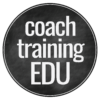Factors Contributing to Positive Career Decisions
[019 Research Review | SCCT Series: 1] Career decisions can be impacted by self-esteem, future time perspective, positive affect and social support. In recent study by Park, Kim, Kwon & Lee (2018) exploring career decision-making of 128 university students revealed the role positive affect (positive emotions & expressions) and self-esteem have on improving an individual’s career decision belief in self (self-efficacy) and reducing career choice anxiety. A lack of self-esteem or heightened career choice anxiety can prevent someone in their pursuit of a desired career. This study sheds light on the value of daily self-reflection on improving one’s sense of self and future aspirations.
